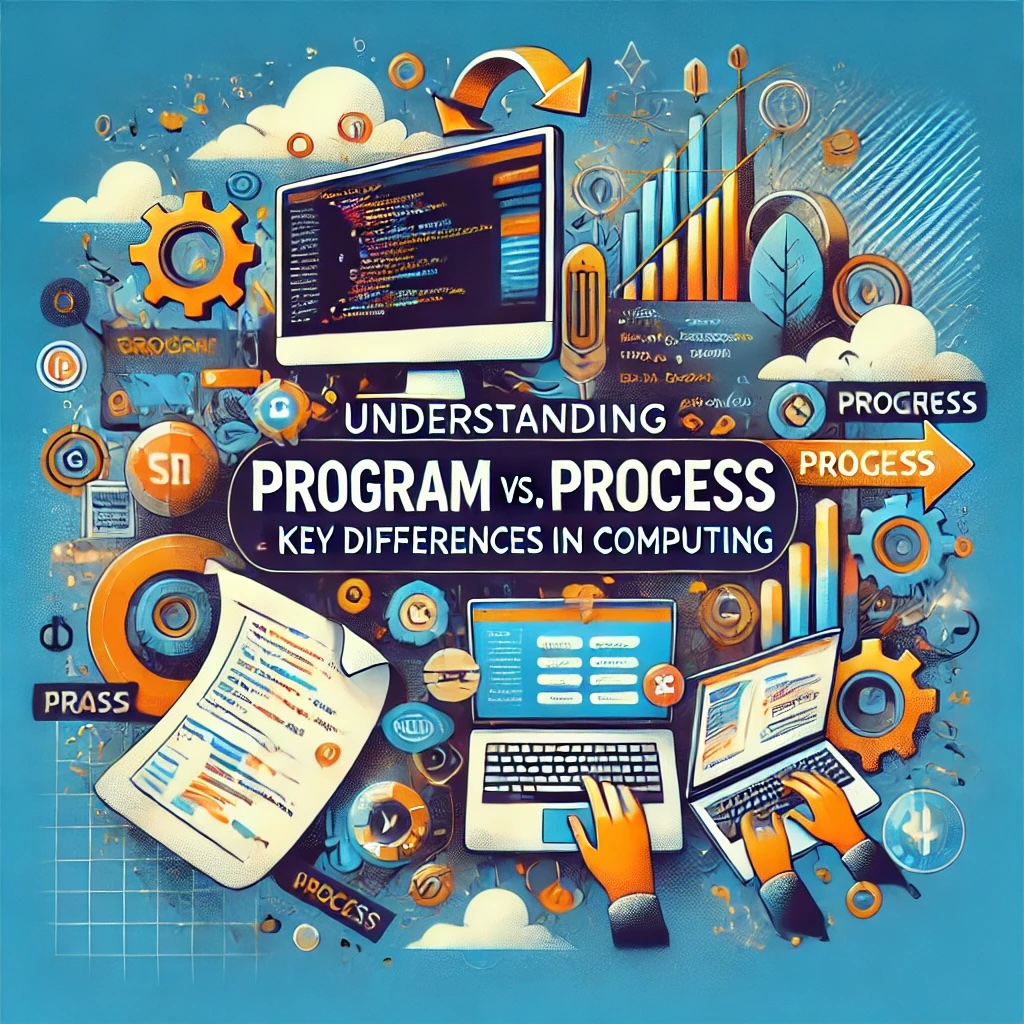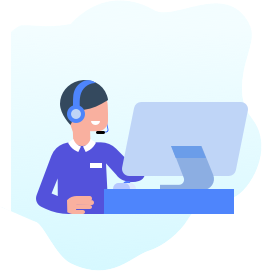Program vs Process: Understanding the Difference
In the realm of computing, the terms “program” and “process” are fundamental yet distinct concepts. Understanding the difference between them is crucial for anyone delving into computer science or IT. Here’s a detailed explanation:
What is a Program?
A program is a set of instructions written in a programming language that tells the computer what to do. Programs are static entities that exist on disk as executable files. They are passive and do not perform any actions until they are executed.
Characteristics of a Program:
- Static: A program is a static sequence of instructions.
- File on Disk: Programs exist as files on a storage device, such as a hard drive or SSD.
- Code: It contains the code that specifies the operations to be performed.
- No Execution State: A program does not have an execution state, such as a current instruction or memory usage, until it is run.
Examples of Programs:
- Microsoft Word
- Google Chrome
- Python scripts
- Operating System kernels
What is a Process?
A process is an instance of a program that is being executed. When a program runs, it becomes a process. A process is a dynamic entity that exists in the system’s memory, carrying out the instructions defined by the program. It includes the program’s code and its current activity, such as the program counter, registers, and variables.
Characteristics of a Process:
- Dynamic: A process is a dynamic entity that represents a program in execution.
- Execution State: It has an execution state, including a program counter, memory address space, and registers.
- Active: Processes are active and can be in various states, such as running, waiting, or terminated.
- Resources: It requires system resources, such as CPU time, memory, and I/O devices, to execute.
Examples of Processes:
- An instance of Microsoft Word running and editing a document
- A web browser process displaying a webpage
- A Python interpreter running a script
- Multiple instances of the same program running simultaneously (e.g., multiple browser windows)
Key Differences Between Program and Process
| Feature | Program | Process |
|---|---|---|
| Definition | A set of instructions stored on disk | An instance of a program in execution |
| Nature | Static | Dynamic |
| State | No execution state | Has an execution state (e.g., program counter) |
| Existence | Exists as a file on storage | Exists in system memory |
| Resources | Does not consume system resources until executed | Consumes system resources during execution |
| Lifecycle | Passive entity | Active entity with a lifecycle (created, running, waiting, terminated) |
Real-World Analogy
Consider a program as a recipe written in a cookbook. The recipe contains the instructions to make a dish. It sits passively in the book until someone decides to cook. When a person starts to cook using that recipe, it becomes an active process. The cooking process involves mixing ingredients, following steps, and using kitchen resources (like utensils and appliances). The recipe (program) remains unchanged, while the act of cooking (process) is dynamic and resource-dependent.
Understanding the distinction between programs and processes is essential for grasping how computers execute tasks and manage multiple operations simultaneously. This knowledge is fundamental for fields like software development, systems engineering, and computer science education.
Join Us at DigiiMento Education
Hello, I am Himanshu Kaushik, the proud owner of DigiiMento Education Private Limited. We specialize in training students for competitive exams like GATE, UGC NET, and PGT in Computer Science and IT. Our courses are designed to provide in-depth knowledge and practical skills, ensuring our students excel in their exams and careers.
For more information and to enroll in our courses, visit our website at www.Digiimento.com. You can also reach us at 9821876104 or 9821876102.
Subscribe to Our YouTube Channels:
Explore our courses and join our community for comprehensive learning and success in your exams.
Tag:32-bit vs 64-bit OS, Computer Science Learning, Device Management in OS, DigiiMento Education, GATE Preparation, Himanshu Kaushik, History of Operating Systems, IT Training for Competitive Exams, Kernel Types, Memory Management in OS, Operating Systems, OS for Competitive Exams, OS Functions, OS Security Features, PGT Computer Science, Process Management in OS, Resource Management in OS, Storage Management in OS, Types of Operating Systems, UGC NET Computer Science




